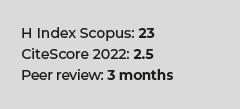Mandatory requirement of social health service in Peru: discriminatory and unconstitutional
DOI:
https://doi.org/10.17843/rpmesp.2014.314.134Keywords:
Human resources, Physician distribution, Rural workers, Public health, Policy, PeruAbstract
The rural and urban-edge health service (SERUMS) is an activity that only health professionals perform for the Peruvian government, as it is a mandatory requirement to qualify for a second specialty or to work in public hospitals and public health care facilities, and obtain government scholarships for future training. The few legal changes in the rules of this social program and the focus of “service” restricted to health professionals lead to a perception of this policy as discriminatory and unconstitutional because it violates the right to education and work. There is no scientific evidence that supports the usefulness and effectiveness of this program in terms of quality of service and health indicator improvement, as well as in adequate distribution and retention of health professionals. We suggest to abolish the compulsory requirement and to reformulate a political strategy to help attract and retain health professionals in vulnerable areas of Peru.Downloads
Download data is not yet available.
Downloads
Published
2014-12-02
Issue
Section
Special Section
How to Cite
1.
Mayta-Tristán P, Poterico JA, Galán-Rodas E, Raa-Ortiz D. Mandatory requirement of social health service in Peru: discriminatory and unconstitutional. Rev Peru Med Exp Salud Publica [Internet]. 2014 Dec. 2 [cited 2024 Nov. 23];31(4). Available from: https://rpmesp.ins.gob.pe/index.php/rpmesp/article/view/134































